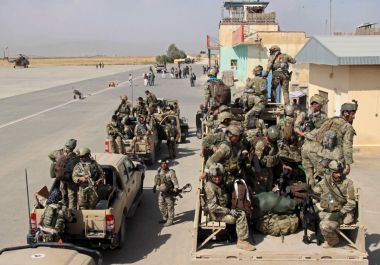Afghanistan: Government troops battle to retake city from Taliban

Heavy fighting raged inside the key northern Afghan city of Kunduz for a third day early on Wednesday as government forces, backed by US air strikes, battled Taliban insurgents who had scored one of their boldest successes in 14 years of war.
Taliban fighters seized control of Kunduz after staging an audacious assault on the city on Monday, Afghan President Ashraf Ghani's biggest setback since taking office a year ago and the worst attack since the bulk of foreign troops left at the end of last year.
Kunduz was the last major city to fall when US-backed Afghan forces toppled the Taliban government in late 2001, weeks after the September 11 attacks on the United States that were planned by al Qaeda leader Osama bin Laden while he was in hiding in Afghanistan.
It also became the first major city to be retaken by the Islamist insurgents since then.
Sayed Sarwar Hussaini, a spokesman for the police chief in Kunduz, said foreign troops rushed to the aid of Afghan troops from the ground and from the air after midnight and that they had regained control of the police headquarters in Kunduz.
He said Taliban fighters had also been beaten back from some areas around the airport and other areas inside the city had been regained.
"Hundreds of Taliban are killed and their dead bodies are on streets...right now a heavy fight is going on inside the city," Hussaini told Reuters by telephone.
Afghanistan's intelligence agency said in a statement issued late on Tuesday that an air strike had killed Mawlawi Salam, the Taliban's shadow governor for Kunduz province, and 15 others on the outskirts of the airport.
It was not possible to verify that report independently.
Afghan security forces have struggled to hold off a multi-pronged insurgency since the bulk of foreign troops withdrew. The taking of Kunduz, even if it proves only fleeting, marked the biggest success for the Islamist insurgents since the Taliban were toppled.
On Tuesday, the US military carried out its first air strike on Kunduz since fighting began there on Monday.
Even if ultimately unsuccessful, the battle for Kunduz appears to have re-energised insurgents who had appeared split only months ago after it was confirmed that Taliban founder Mullah Mohammad Omar had died two years ago.
The Taliban has since said one reason for the assault on Kunduz was to prove the group was united after the appointment of a new leader, Mullah Akhtar Mansour, in July angered many key figures in the insurgency.











